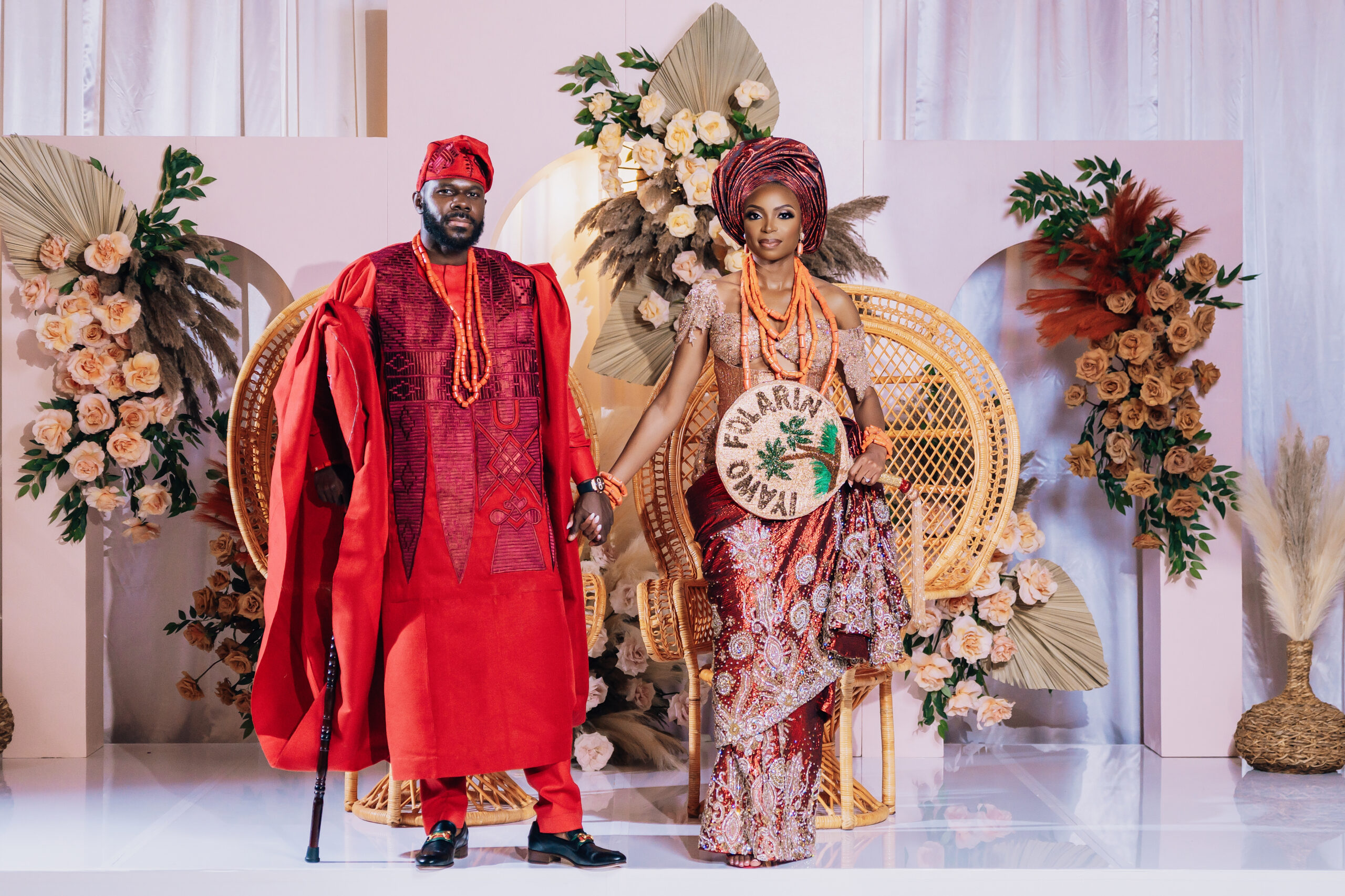There’s an estimated 371 tribes in Nigeria, each with their own unique customs, religions, languages and cultures. One tradition that brings everyone together is the Nigerian wedding celebration.
Nimma Ovwori, the founder of Nimma Ovwori Weddings & Events, shares the importance of weddings in Nigerian culture.
“Weddings are very significant in Nigerian culture,” Ovwori said. “It’s a time to celebrate an extremely important and joyous occasion with family, friends and the community.”
The ‘Traditional’ Wedding Versus the ‘White’ Wedding
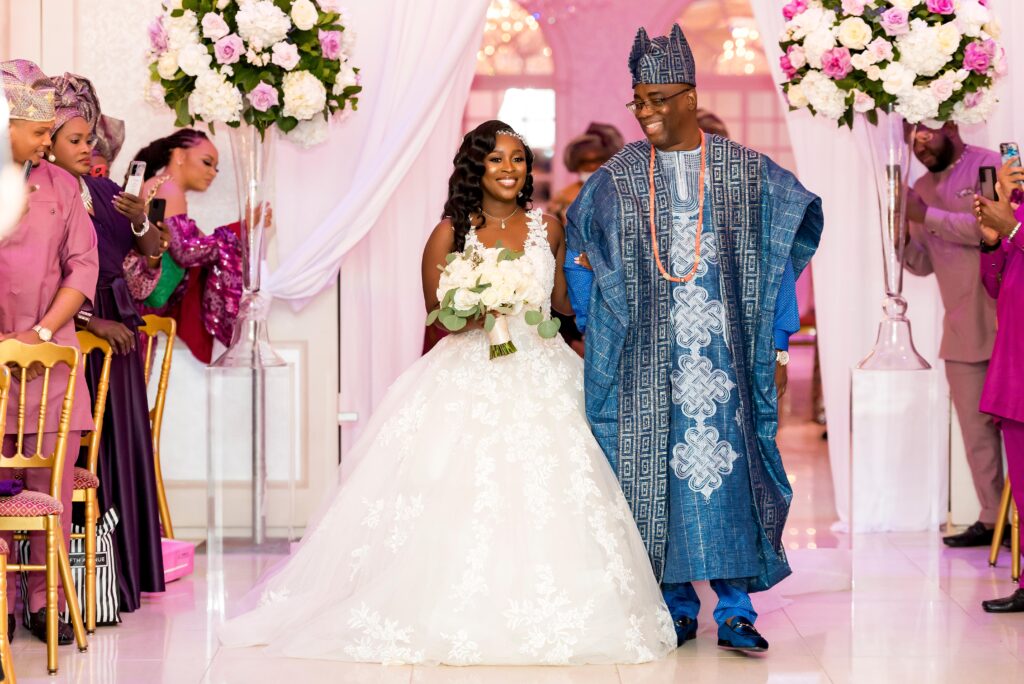
There are typically two parts of a Nigerian wedding: the “traditional” wedding and the “white” wedding. The traditional wedding entails all of the necessary cultural requirements for each of the individual ethnic groups, Ovwori explained.
“In Nigeria, there are at least 200 ethnic groups,” Ovwori said. “Even two Nigerians getting married need to navigate the intricacies of the differing culture requirements.”
The traditional wedding can happen a day before the “white” wedding or even a year ahead. The white wedding is very similar to a Western wedding. Many aspects will be identical to an American wedding with the white dress, walking down the aisle, the exchange of vows, the rings, a declaration and a reception.
Religion Is Fundamental
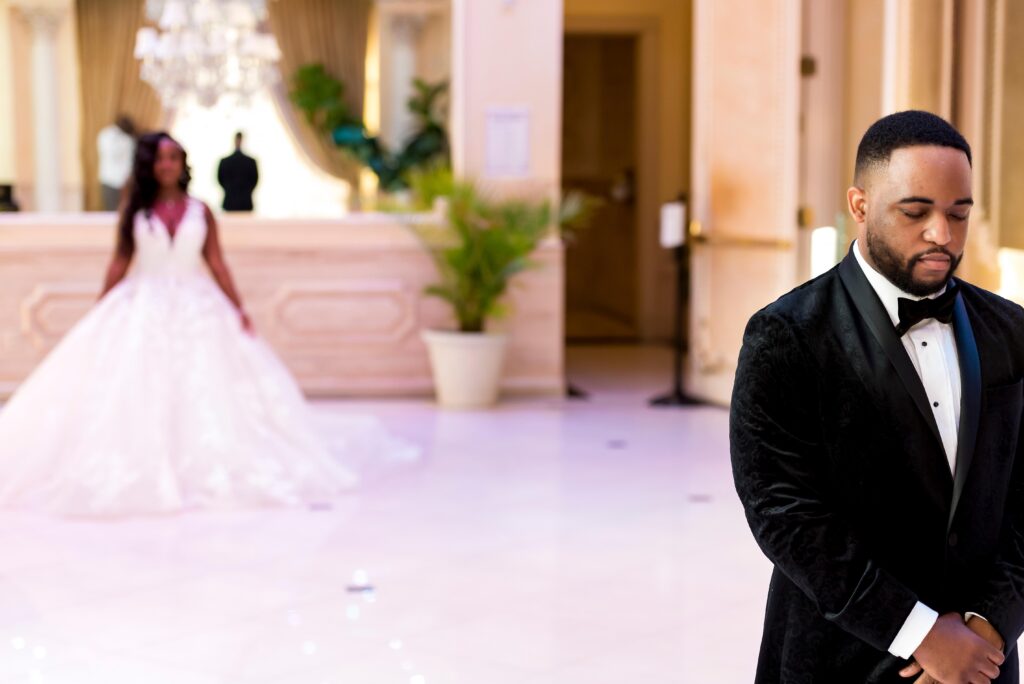
Since most Nigerians are religious, Nigerians incorporate religion heavy into the wedding rites, Ovwori explained. The two main religions are Christianity and Islam.
“It’s rare to see a secular Nigerian wedding because even if the couple is not particularly religious, key family members, like parents, most likely are and honoring parents is part of our culture,” Ovwori said.
Elaborate Attire Is Common
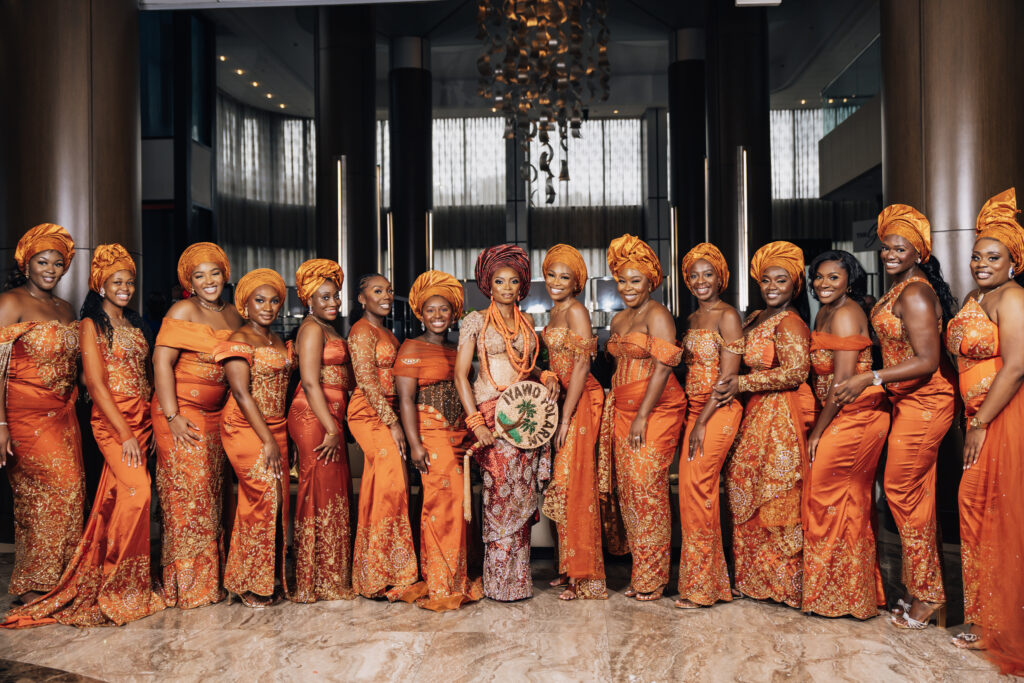
In a traditional wedding, there is an unofficial bridal party, which most people call Aso Ebi girls or guys. Aso Ebi is a Yoruba term that means “cloth for the family.” Most Nigerians use it loosely to refer to the women or men who accompany the couple and wear a distinct outfit and color.
For men, their outfits are usually the same style. For women, a designer customizes the outfits. It’s common to see flashy, loud and bold designs, Ovwori said.
“Nigerian brides are not afraid of anyone upstaging them, and it is expected that the ladies will look their best,” she added. “It’s a testament to the bride that she has fashionable, elegant friends.”
There’s plenty of opportunity for brides to showcase her personal flair. Most Nigerian brides typically have at least two to four outfit changes.
Many guests wear the same fabric, but they will customize it. Women typically wear a gele, an elaborate head wrap made of aso eke fabric or damask. Men will wear a cap, usually the same fabric as the gele.
The Greeting Is a Sign of Humility
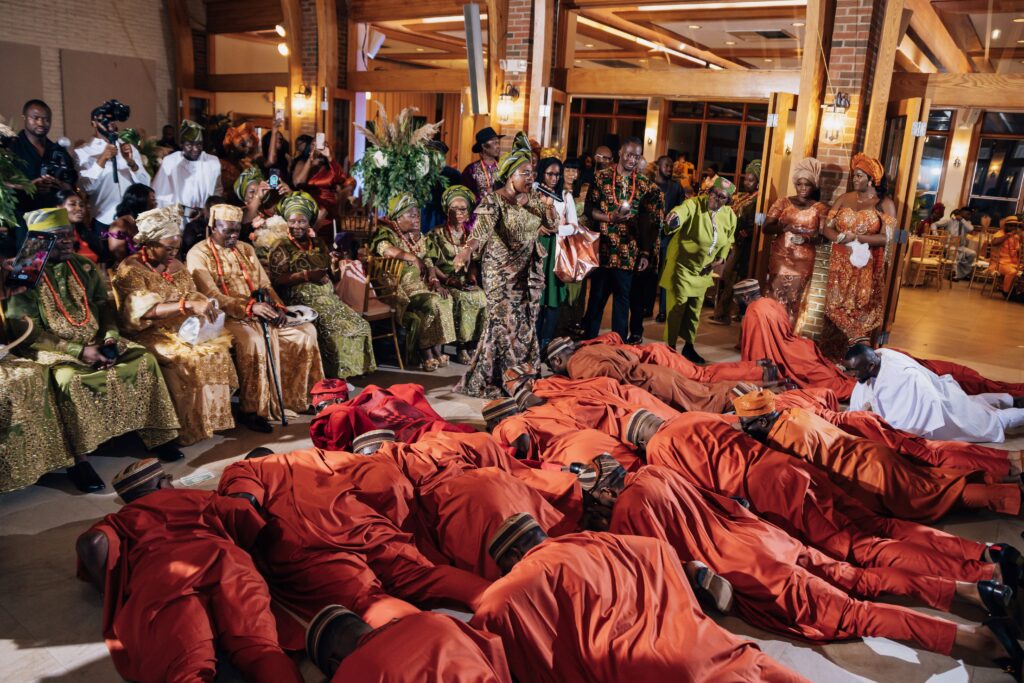
For Youruba weddings, the groom and groomsmen prostrate, or lie flat, on the floor as a form of greeting and to show respect to the bride’s family. Then, they repeat the same gesture to the groom’s family.
In an Igbo wedding, the bride does something called a wine carry. While the groom hides in the crowd of guests, the bride enters carrying a gourd. The gourd is a cup of wine, specifically palm wine. The bride dances through the room searching for her groom. When she finds him, she kneels and gives him a sip. She sips wine as well, and they dance back together to their parents for a blessing.
The Money Dance
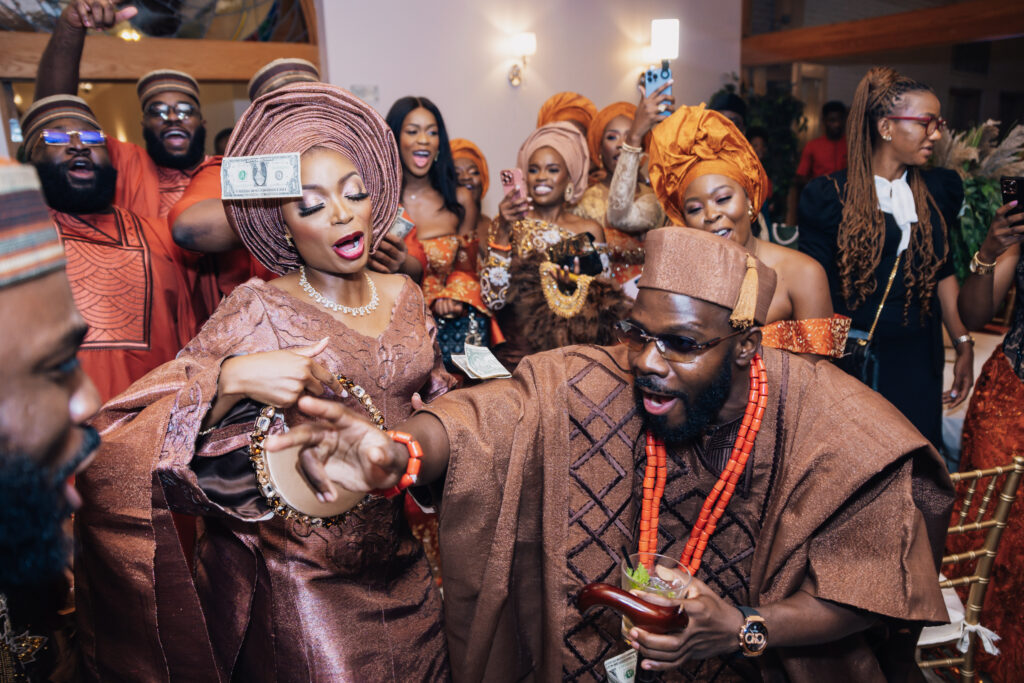
In most Nigerian weddings, you will see the money dance. Guests toss money on the couple whenever they are on the dance floor. They also do the same to the parents when they have their entrance as well.
The Reception Entrance
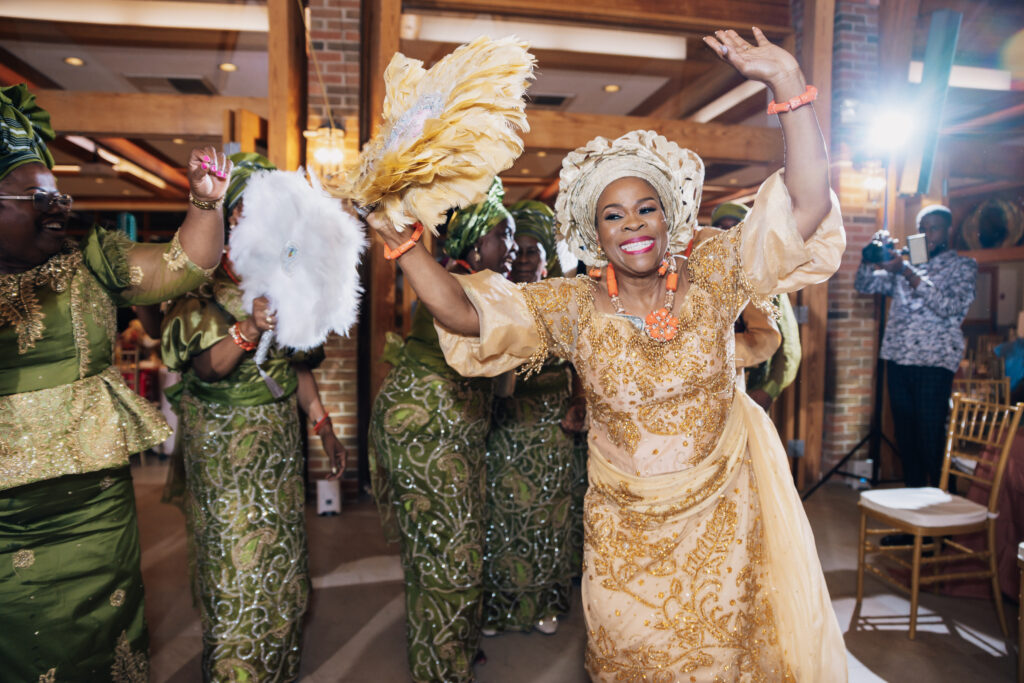
In an American wedding reception, it’s common for the grand entrance to only include the bridal party and the couple, followed by the couples’ first dance. In a Nigerian wedding, the parents of the groom are announced first. Then, they dance into the room with a huge crowd of their family and friends. While they dance, people shower them with money before they go to their seats. Then, the bride’s family and the aso ebi will repeat the same steps before the couple makes an entrance.
The couples draw out their entrance into the wedding.
“They dance as long as possible because people will spray money on them as long as they are on the dance floor,” Ovwori added. “The entrance is typically followed by the first couples’ first dance.”
